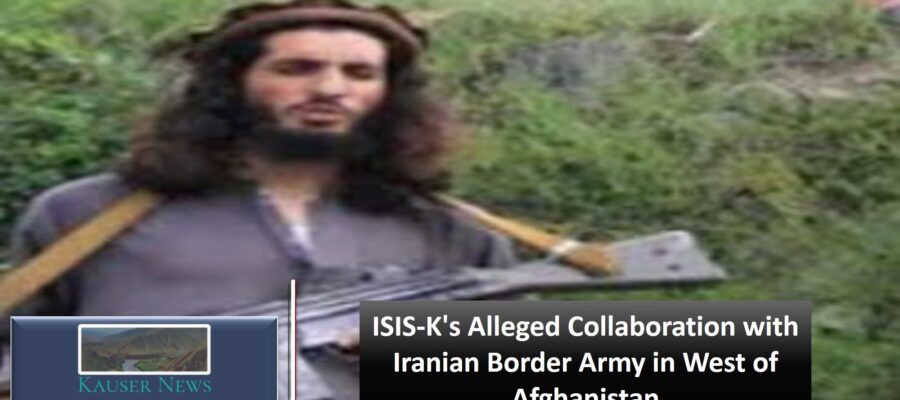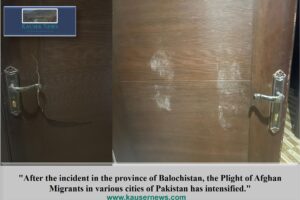In the complex landscape of global geopolitics, the emergence and activities of terrorist organizations often have far-reaching implications. One such case that has raised eyebrows and concerns is the alleged collaboration between ISIS-K and the Iranian Border Army in gaining control over the western regions of Afghanistan.
Kauser News Agency claims to have obtained documents revealing a clandestine partnership between the terrorist group and the intelligence agencies of Iran and Pakistan. This revelation, if true, could reshape the dynamics of the Afghan conflict and pose a significant threat to regional stability.
The western regions of Afghanistan, once under the control of the Taliban, are now purportedly in the hands of ISIS-K, a faction notorious for its extreme ideology and brutal tactics. The question that looms large is how a group with roots in the Middle East managed to establish dominance in this strategically crucial area. Kauser News Agency’s investigation suggests a troubling collaboration between ISIS-K and the Iranian Border Army.
According to Kauser News, Iranian and Pakistani intelligence agencies are actively working to bring ISIS-K to the forefront of the Afghan conflict in 2025. The implications of such an alliance are profound, as it suggests a coordinated effort by state actors to influence the power dynamics in the region. The question that arises is why would Iran and Pakistan support a group notorious for its extremist ideology and violent methods.
Despite the gravity of the allegations made by Kauser News Agency, both the United States government and the Taliban have remained silent on the matter. The lack of response raises concerns about the authenticity of the claims or, perhaps, the sensitivity of the issue. Analyzing the potential reasons behind this silence is crucial in understanding the intricate web of alliances and power struggles in the region.
Understanding the motivations behind the alleged collaboration between ISIS-K and the Iranian Border Army is essential in grasping the broader picture. Possible motives could range from regional power dynamics, and economic interests, to a desire to counter common adversaries. Unraveling these motivations may provide insights into the complex relationships that drive state-sponsored terrorism.
If proven true, the collaboration between ISIS-K and Iranian intelligence agencies could have severe consequences for regional stability. It would not only complicate the ongoing efforts to bring peace to Afghanistan but also strain diplomatic relations between Iran, Pakistan, and the international community. The question of how neighboring countries and the global powers respond to this revelation becomes pivotal in shaping the future trajectory of the Afghan conflict.
One of the challenges in assessing the validity of Kauser News Agency’s claims is the difficulty in verifying intelligence reports.
The secretive nature of intelligence operations and the potential involvement of multiple actors make it challenging to discern fact from fiction. The international community must tread cautiously and employ rigorous investigative mechanisms to ascertain the truth behind these allegations.
The alleged collaboration between ISIS-K and the Iranian Border Army in gaining control of the west of





